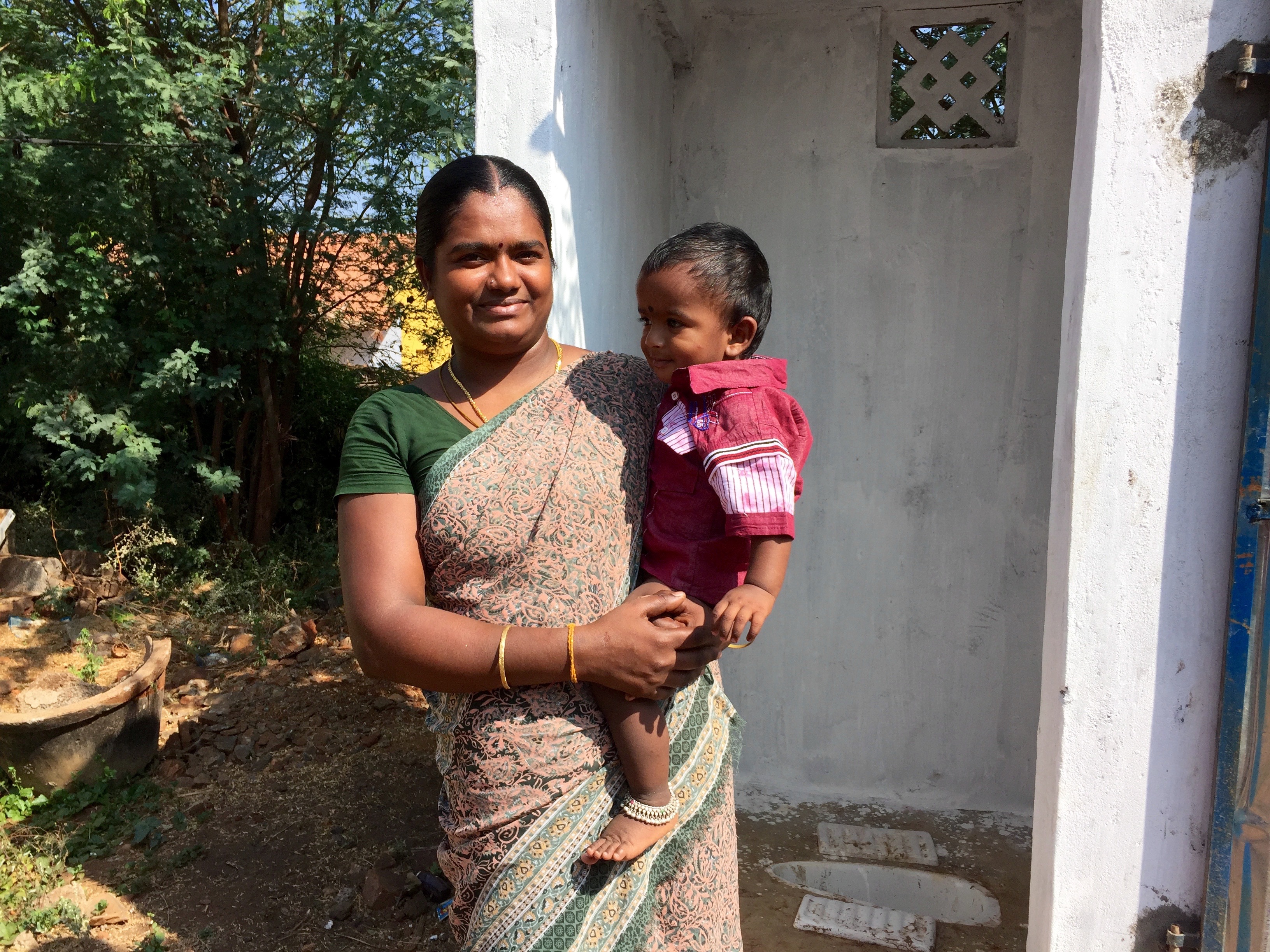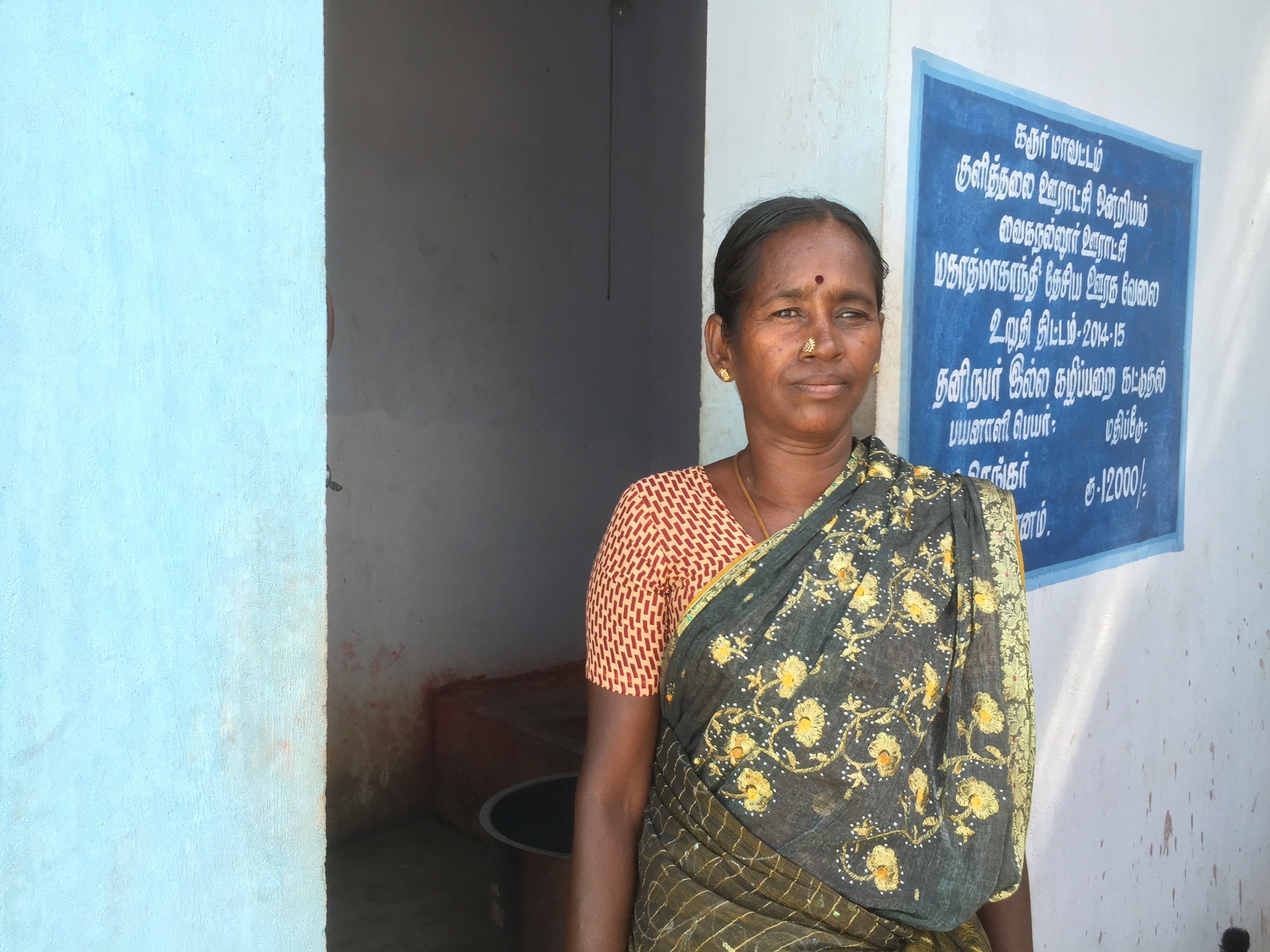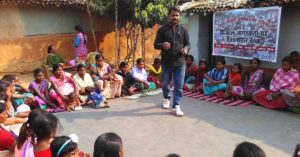TBI Blogs: Taking Loans to Build Toilets For Their Kids Is an Expression of Love for These Mothers
Microfinance is helping mothers in rural Tamil Nadu secure the health and safety of their children by financing the construction of toilets in their homes.

Microfinance is helping mothers in rural Tamil Nadu secure the health and safety of their children by financing the construction of toilets in their homes
In India, more than 60% of the population does not have access to toilets. With the Swachch Bharat Gramin Mission sweeping through towns and villages of the country, this number is slowly changing. However, while more houses are constructing toilets, open defecation continues to be a growing problem, proving that changing deeply entrenched hygiene practises takes more than just money and infrastructure.
For some women in rural Tamil Nadu, the health and safety of their children has proven to be all the motivation they need to not only construct toilets, but to use them as well.
Deepa Arivlagan is a resident of the village of Rethinampillai in Tamil Nadu. Like most new mothers, Deepa goes about her day with her one-year-old clinging to her side. Happy to be in his mother’s loving arms, the little boy smiles, gurgles and squeals. The two are clearly inseparable.
Before, Deepa and her family were forced to walk long distances to use the government-constructed public toilet. The toilets were often crowded or dirty and although Deepa and her husband put up with it, they began to worry about the impact it would have on the health of their five-year-old daughter and their one-year-old son.
Desperate to secure the health of her children, Deepa decided to build a toilet in her home.

Banumathi Rengar lives in Keelakottamedu village. She and her husband work as daily wage labourers to give their three teenage daughters a better quality of life.
With no access to a toilet, the family was forced to defecate in the open fields where they had to put up with insects, animals and the risk of disease. Defecating in the open also proved to be a growing safety concern for the girls, who could easily fall prey to molesters and rapists.
In the name of modesty, women often wait to relieve themselves until the veil of darkness falls, but these hours only made Banumathi more nervous.
The need to protect her daughters drove Banumathi to build a toilet: “I decided that no matter what, we had to build a toilet,” she says.

When Mangaiyarkarsai Shankar moved to the village with her husband and her four-year-old daughter, she was surprised to see that her new home didn’t come with a bathroom.
“I’m from a town so I’m used to following healthy sanitation practices. When I moved to my husband’s village and there wasn’t a toilet, it made me very uncomfortable. We decided that we needed to build a toilet here quickly,” Mangaiyarkarasi explains.
Like mothers everywhere, Deepa, Banumathi and Mangaiyarkarsai too would go to great lengths to ensure the health and safety of their children. For these mothers in rural India, where good hygiene practises are not the norm, building a toilet is yet another way to express their love towards their children.
Since the launch of the Swachch Bharat Mission Gramin (SBMG) in 2014, the government, along with a few NGOs have sponsored toilet building activities in rural areas. The government was also promoting individual household latrines under the Nirmal Bharat Abhiyan, the predecessor to the Swachch Bharat Abhiyan.
As a result of these initiatives, the percentage of rural families with access to toilets has increased from just 22% in 2001 to almost 50% in 2015. Today, villagers can even apply for a Rs. 12,000 incentive for construction.
These three mothers are demonstrating that microloans can change the face of sanitation in India. Deepa, Banumathi, and Mangaiyarkarasi all learned about the microfinance institution (MFI) Gramalaya Urban and Rural Development Initiatives and Network (GUARDIAN). It was thanks to this institution that they were able to take out loans to build toilets in their homes.
While the women may say that necessity is what forced them to construct these toilets, it is clear that they went through this trouble for more personal reasons. Today, Deepa and Banumathi are proud that their children will grow up with access to proper sanitation. Banumathi rests easier knowing her daughters will no longer face the risks associated with open defecation.
All mothers want to give their families a good life. The expenses of raising a child in this and day however, are significant. Toilets may not always be the top priority, but with microfinance, they become much more attainable. The value of a toilet goes beyond environmental concerns and health benefits – it provides people with a more dignified way of living.
Amongst motivated and empowered women in rural Tamil Nadu, love is beginning to manifest itself in the concrete seams and porcelain slabs of a new bathroom. These mothers are changing the status quo of sanitation and providing their children with better health, safety, and dignity.
Do you also want to cover inspiring stories of change and make some substantial difference in the social sphere? Then click here to join the Milaap Fellowship Program.
Like this story? Or have something to share? Write to us: [email protected], or connect with us on Facebook and Twitter (@thebetterindia).
If you found our stories insightful, informative, or even just enjoyable, we invite you to consider making a voluntary payment to support the work we do at The Better India. Your contribution helps us continue producing quality content that educates, inspires, and drives positive change.
Choose one of the payment options below for your contribution-
By paying for the stories you value, you directly contribute to sustaining our efforts focused on making a difference in the world. Together, let's ensure that impactful stories continue to be told and shared, enriching lives and communities alike.
Thank you for your support. Here are some frequently asked questions you might find helpful to know why you are contributing?


This story made me
-
97
-
121
-
89
-
167














